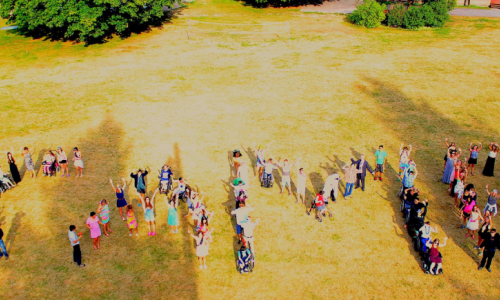
If you’re looking for a new job, applying to a graduate school or another program, chances are that you are going to need references to go along with your application, resume, and cover letter. You’ll learn how to ask people to be references, how to pick from your reference list and finally, how to guide your references once you’ve selected them.
Picking your References
Who you approach to act as a reference depends on what position or program you are applying for. Choose references that can highlight the qualifications that are most relevant to the position or program. If you are applying to a graduate program that requires a great deal of research, consider using a professor that has supervised you on research projects. If the prospective employer is looking for a good writer, ensure that your references can speak to your writing abilities.
You don’t have to be limited to just your employment supervisors! You want to have references who know you, your skills, and your ability to perform in the position or program you are applying for. Think of other people who can act as references besides your immediate supervisors: coordinators or coworkers from volunteer positions, clients or customers, or supervisors from other departments can make good employment references.
For academic references, consider co-workers or supervisors from your internships or volunteer work, or perhaps your academic mentor, in addition to “usual” references like your professors.
You’ll want to come up with around three to five references—whether they are from your employment, academic or personal history will depend on the application for which you need them to act as a reference. Remember that you should avoid using personal friends or family members as references!
Make sure that whoever you ask is going to give you a good reference. If they seem hesitant to discuss your work history, academic achievements, or volunteer work with you, consider why. Look back on your work with them and try to think of anything that may give them pause when it comes to someone calling about a reference for you. A reference that isn’t glowing can be damaging—your potential employer may think that you were simply unable to find a better reference!
Asking Someone to be a Reference
Never list someone as a reference without getting their permission first! It’s important to make sure that they are aware that potential employers or admissions coordinators will be contacting them.
How do you go about asking someone to be a reference? Ask them if they feel they are familiar enough with your work to act as a reference for you. If you are looking for someone to act as a reference for your research or writing skills, ask them if they feel they can speak positively about your accomplishments in those areas when you worked with them. If they seem hesitant or unsure, consider asking someone else.
If you are contacting someone (like a professor) who you haven’t been in contact with for a while, the best thing you can do before asking them is make sure that they remember you! Remind them what class you took, papers you worked on, research or extracurricular assignments. Ideally, you should be using references with whom you are still in contact when you are applying for the position or program.
Start early! Some programs require references to be sent directly to them, and not submitted with their application. Sometimes multiple copies are required, or need to be submitted online.
Guiding your References
Make sure that your references have all the information that they need to help you with your search. Provide them with an updated copy of your resume, and a description of the position or program you are applying for.
Consider asking references to target specific skills and abilities. For example, “Amy, this position really is looking for leadership skills, if possible could you focus on those?” Or, “In my interview they asked me several times about working well in groups. Could you speak to that when they contact you?”
Keep them in the loop about the search. If your interview seemed to focus more on your abilities as a researcher, let your references know that highlighting your skills in that area may be helpful. Another reason to keep them informed is to let them know how your search is progressing: if you have a second interview lined up, if you are applying for another position, if the program will be making its decision soon.
Sample Reference Check Questions
-
Why did (name) leave the company?
-
What was her/his position? Can you describe the job responsibilities?
-
Were there any issues you are aware of that impacted her/his job performance?
-
Did s/he get along well with management and co-workers?
-
Did (name) supervise other employees? How effectively? If I spoke to those employees, how do you think they would describe (name's) management style?
-
How did (name) handle conflict? How about pressure? Stress?
-
Can you speak to his/her strong and weak points? What was noted as needing improvement during this performance review?
-
What was (name's) biggest accomplishment while working for your company?
-
Would you rehire (name) if the opportunity arose?
-
If I describe the position we are hiring for to you, could you describe how good a fit you think (name) would be for the position?
-
Can you describe this person's experience working as a member of a team?
Source: Doyle, Alison. About.com, “Reference Check Questions" http://jobsearch.about.com/od/referencesrecommendations/a/refercheck.htm.
Beyond the Blog
-
Still have questions about obtaining references, reference letters, or using references? Drop by SFU Career Services and speak to an Advisor about how to support your application with references.
-
In the Co-op Program? Contact your Co-op Coordinator or Student Advisor for reference, cover letter and resume review. Or consider scheduling a ‘mock interview’ to prepare for upcoming interviews.














